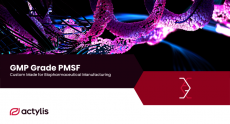Pall up on single-use and steel hybrid bioprocessing systems

Pall Corporation reported an “exceptional quarter” yesterday, with CEO Larry Kingsley attributing sales of $352m (€282m), up 11% on Q1 2014, on the “ongoing strength of [its] biopharm franchise” and recent acquisitions.
The company makes traditional stainless steel systems and consumables, as well as single-use products and Kingsley said despite the latter “growing like crazy,” industry is still investing in stainless solutions.
“We have seen new capacity come online even in the last quarter accordingly which will continue to bring both systems opportunities for our Biopharm group,” he told investors.
“In many cases what we are seeing now is the systems are hybrid solutions, where they are taking a portion of the capacity into a single-use format but not all of it, and it’s probably going to be that way for quite some time.”
Despite the flexibility and cost-saving potential of single-use systems, there have been concerns raised by industry about the suitability of such systems when producing high-volumes of biologics, as well as having to cede control of the supply chain to vendors.
However, recent investments seemingly support Kingsley’s confidence that Biopharma is still interested in both types of system.
Amgen’s newly opened plant in Singapore is outfitted with single-use technology, and WuXi’s planned cell therapy in Philadelphia, Pennsylvania will also be fully single-use, but a new Bristol-Myers Squibb facility in Ireland is set to be equipped with six 15,000L stainless steel bioreactors.
ATMI acquisition and facility shake up
Pall acquired a full range of single-use systems and consumables through its acquisition of ATMI’s life science business for $185m in February. Along with other bolt-ons, Kingsley said Pall is “well underway to creating a pretty impressive portfolio.”
He added the company has a strong share of the single-use market, and this is expected to grow now ATMI is fully integrated.
“We’ve actually closed down one of the ATMI facilities and integrated it into the remainder of Pall,” he told stakeholders, “and we are working to better clean up where we focus our single-use technologies in a set of dedicated facilities for the future.”
Sales for the quarter from the ATMI business stood at about $13m, which – as William Blair analyst Brian Drab pointed out – was a little below expectation.
Kingsley agreed, but said: “Our single-use strategy and plans have us committed to a very significant double-digit organic growth rate now that ATMI lapses and we are very confident that we are going to achieve that.”


















